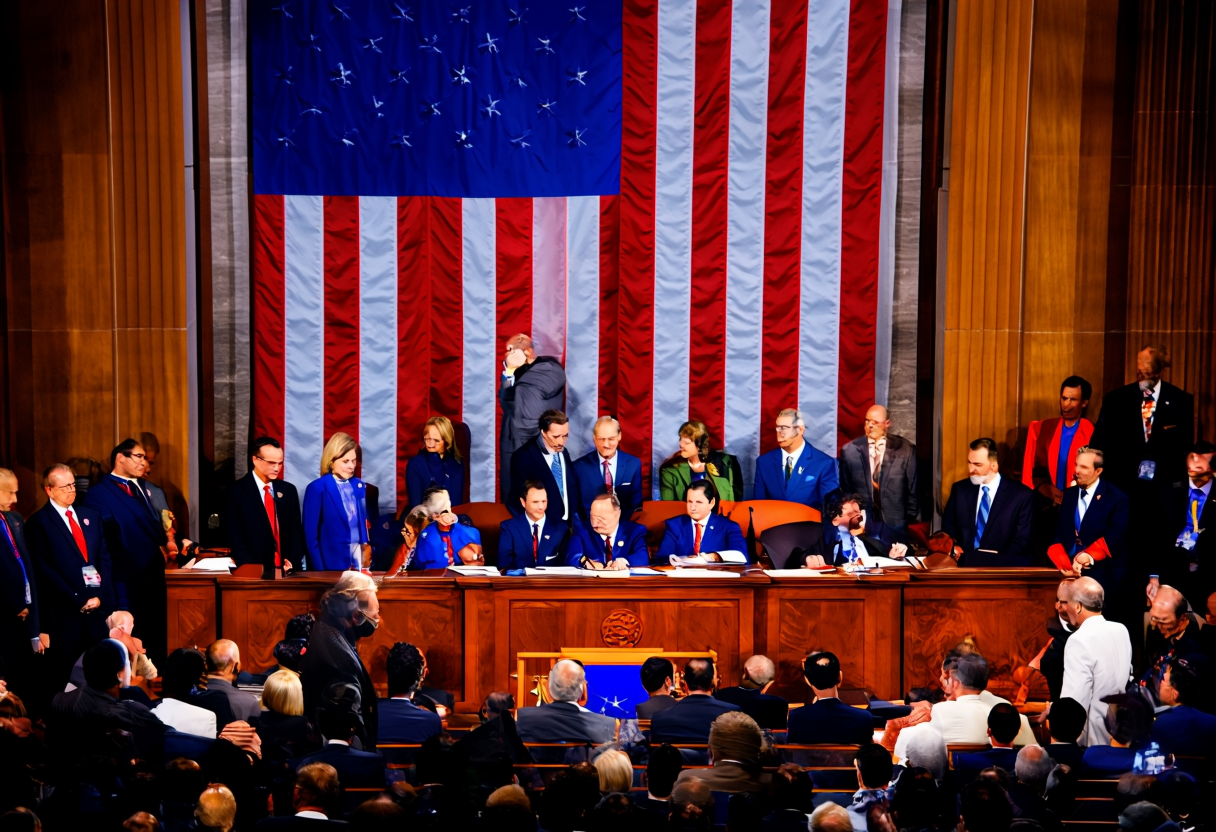In an unprecedented move, Congress passed a bill that forces all lawmakers to read the full text of any legislation before voting. The bill led to mass confusion, as several politicians were seen frantically googling words like “fiduciary” and “appropriations.
In a shocking turn of events that has left Washington, D.C. reeling, Congress passed a groundbreaking piece of legislation today mandating that all members of the House and Senate must read the full text of any bill before casting their vote. The bill, humorously titled the “We Actually Need to Know What We’re Doing Act,” passed with overwhelming bipartisan support, as most lawmakers believed it was merely a symbolic gesture. Little did they know that the fine print—irony at its finest—demanded immediate enforcement.
The chaos began almost instantly. Panic spread through the halls of Congress as legislators scrambled to decipher the contents of the massive stack of bills they’ve ignored for years. Senate Majority Leader Chuck “I Swear I’m Reading” Schumer was spotted nervously flipping through a 2,000-page document, muttering, “What even is a fiduciary?”
Representative Marjorie Taylor Greene, known for her controversial stances, was seen frantically searching for a dictionary, while others reportedly formed impromptu study groups in the Capitol cafeteria. “It’s like cramming for finals,” remarked Senator Susan Collins. “Except this time, if I fail, the entire nation’s healthcare system might collapse.”
The situation escalated when Congress convened to vote on a routine appropriations bill, which historically would pass with little fanfare. However, as the clock ticked on, legislators, bleary-eyed and caffeine-fueled, began to raise objections to various provisions—some of which they had themselves authored. “Wait, I didn’t know that was in there!” exclaimed Senator Lindsey Graham, who, after a hasty re-read of his own amendment, admitted that even he found it “a tad draconian.”
As the day wore on, the usual brisk pace of legislative business ground to a halt. Floor debates became marathon sessions as members of Congress, struggling to pronounce half the words in the bills, argued over the meaning of legal jargon. “I didn’t sign up to be a lawyer,” one anonymous lawmaker was heard complaining, “I signed up to kiss babies and tweet!”
Despite the pandemonium, the bill’s proponents remain optimistic. “This is a revolutionary moment for American democracy,” said Speaker of the House Kevin McCarthy, who proudly brandished a highlighted and annotated copy of the Clean Water Act. “For the first time, we might actually pass laws that make sense—because we’ll know what’s in them!”
Outside the Capitol, lobbyists were reportedly seen in a collective state of shock. “We never thought they’d read it!” exclaimed one oil industry representative. “We’ve been slipping in our wish lists for years. Now, they might actually notice the part where we redefine oil spills as ‘liquid nature enhancement.’”
Not everyone was pleased, however. Several lawmakers threatened to repeal the bill, arguing it infringes on their constitutional right to “vote with their gut” and that the reading requirement is “just too much to ask.” Senator Ted Cruz, in a press conference, called the bill “the biggest threat to our democratic process since daylight saving time.”
The White House has yet to comment on the situation, though insiders report that President Biden is “cautiously optimistic” about the potential for more informed decision-making. However, press secretary Karine Jean-Pierre did hint that the president was “considering sending Congress a few Dr. Seuss books to get them started.”
As the nation watches in bemused anticipation, one thing is clear: the days of blindly voting along party lines might be over. Whether this newfound demand for literacy will lead to better governance or just more political gridlock remains to be seen. For now, Congress is preparing for its next big challenge: a 3,000-page bill on tax reform, with a mandatory quiz at the end.


Leave a Reply